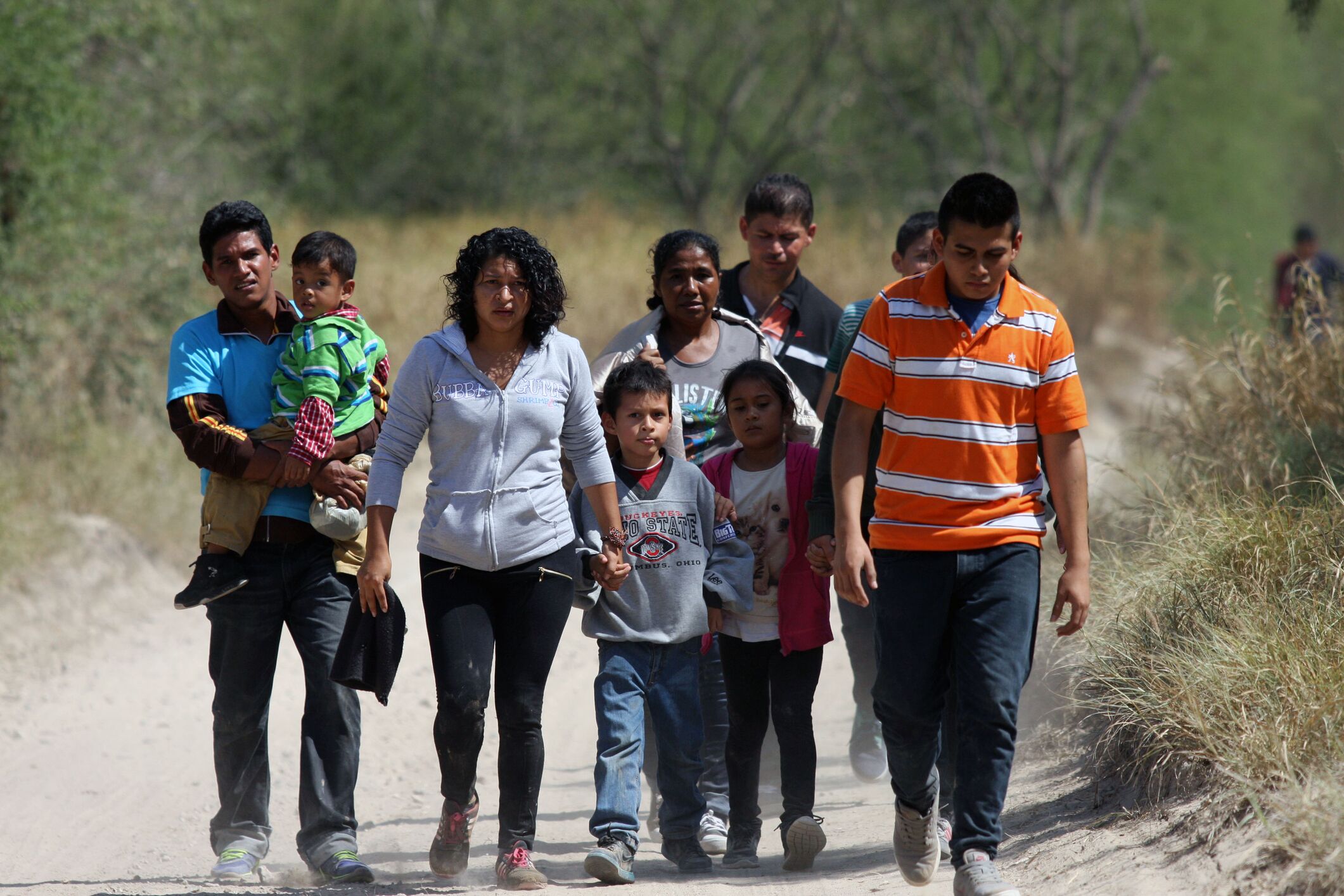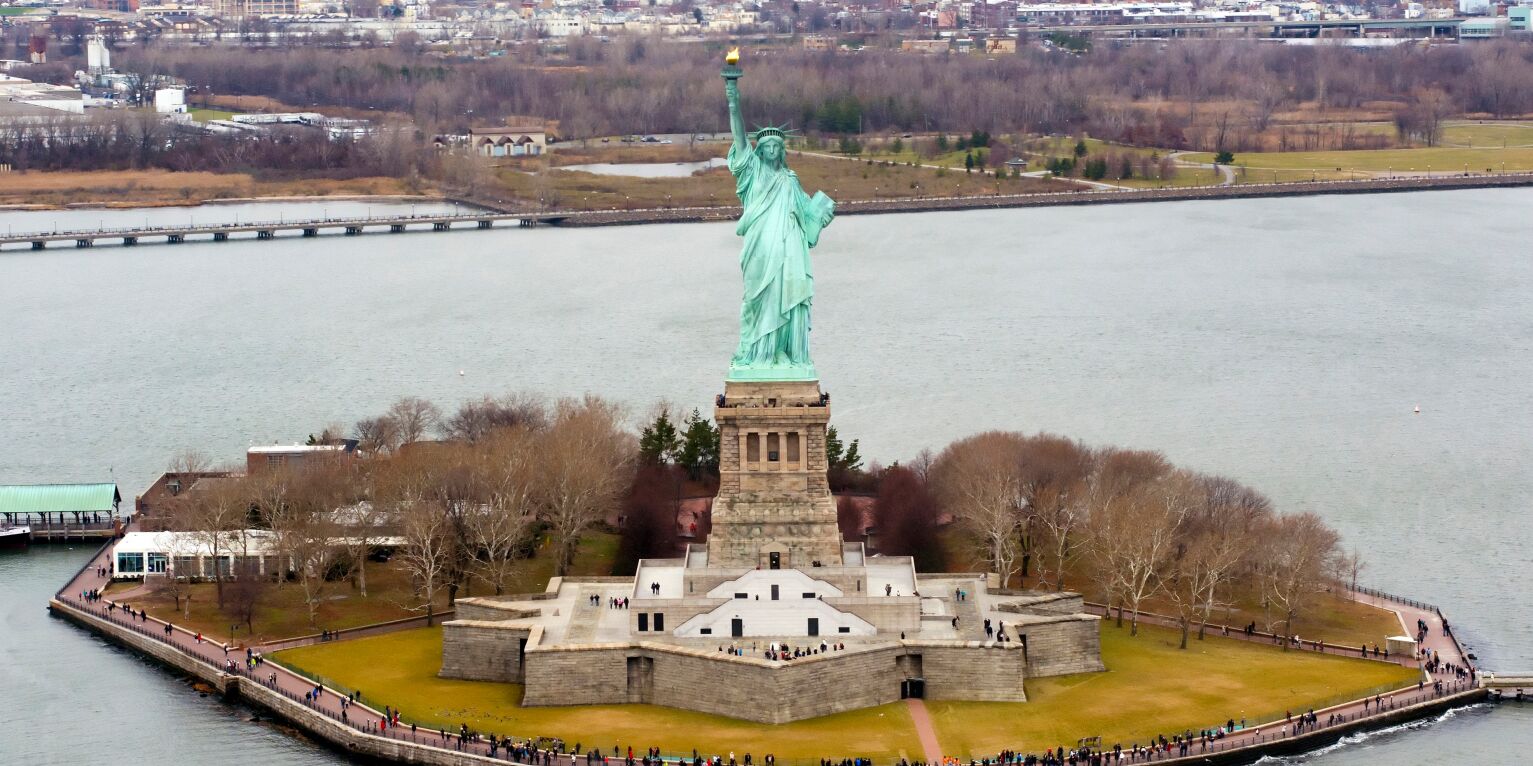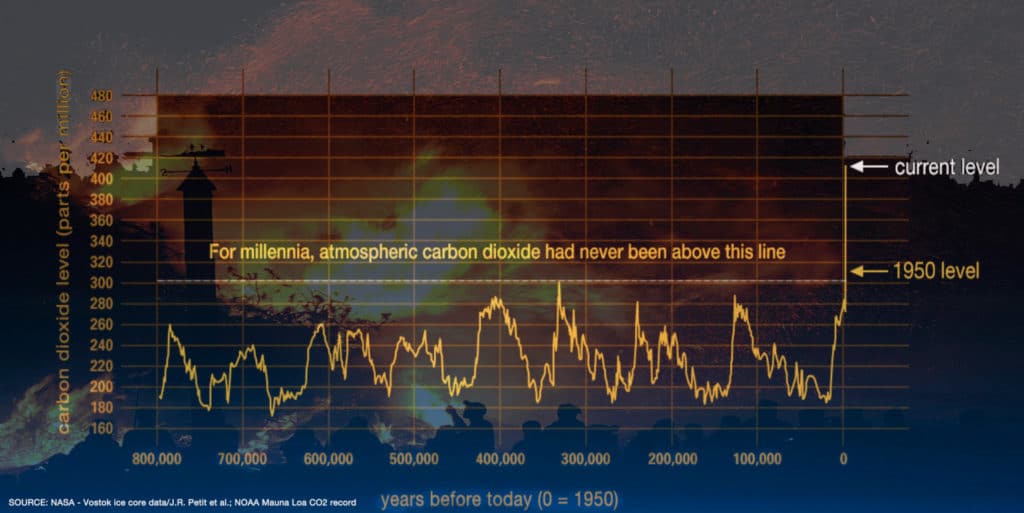
Almost 300 climate scientists now believe the increase in global temperatures will substantially exceed the 1.5°C target set in the Paris Climate Agreement. The result will be unprecedented human migration. Through separate actions, Texas Governor Greg Abbott and the nonprofit Welcoming America may be resetting the politics around tackling the migration problem.
To date, much of the attention around climate change has been on sea level rise, the increased frequency and violence of storms, long-term drought, and a growing number of large wildfires. What has gotten little attention is the movement of people these events are and will continue producing.
After sounding the alarm for more than a decade that exceeding a 1.5°C (2.7°F) increase in global temperatures would be devastating to human society, a majority of climate scientists now believe we will exceed that mark by at least a full degree. That’s according to The Guardian, which surveyed scientists who contributed to recent reports by the United Nations’ Intergovernmental Panel on Climate Change. The big takeaway: almost 300 of the 380 respondents said they expect warming to reach 2.5°C (4.5°F) or higher.
Two years ago, when 1.5°C was still a credible target, the UN’s International Organization for Migration (IOM) estimated that up to 216 million people worldwide would migrate because of climate-related impacts over the next 30 years. But “depending on the warming scenario and future population growth”, IOM warned, that number could be substantially higher. Given the increasing expectations of much higher warming, Welcoming America’s interpretation of IOM’s data – that as many as 1 billion people, or one of every 10 persons, could be uprooted by 2050 – should be cautiously accepted. Welcoming America and its partners seek to build the social infrastructure that can help a community absorb large numbers of immigrants with as little friction as possible – typically by establishing classes for learning English and programs to help navigate local bureaucracies, for example to obtain a driver’s license, and to help reduce cultural isolation and the friction caused by cultural integration.
We know from existing migration pathways where many of those people will go – to Europe and the United States, lands of greater wealth and freedom.
Thanks to Abbott, the Republican governor of Texas who has bused more than 100,000 migrants to American cities including Chicago, New York, and Washington, news coverage has given many Americans in those cities and around the country a greater sense of how a sudden influx of unauthorized immigrants can overburden a community. Deemed a stunt by his political opponents, Abbott’s tactic has increased awareness of the challenges posed by unauthorized immigration.
As Representative Veronica Escobar of Texas told CNN, “What Abbott was and is doing – as shameful as it is to human beings as political pawns – it was effective in drawing the attention of people in communities far away from the border to the challenge we’ve been facing on the border for years.” Escobar is a Democrat and co-chair of President Biden’s reelection campaign.
What is the immigration problem?
The “immigration problem” is much bigger than the ebb and flow of unauthorized immigrants crossing our southern border. As the Cato Institute has written, “The United States has one of the most restrictive immigration systems in the developed world.” Not only do we have inadequate policies and resources for dealing with migrants coming across the border, but we’ve permitted 10.5 million unauthorized immigrants to reside in this country for years without giving them a clear path to secure permanent legal status. And the rules governing the entry of authorized immigrants and those seeking refugee status are outdated and in need of revision.
Historically, our immigration policy has been mostly indifferent to immigrants and has little coherent strategy as its goals have ping-ponged among a variety of objectives, including economic need, nativism, strategic humanitarian impulses, and security and safety concerns. What little immigration planning exists fails to consider the anticipated increase in the number of refugees and unauthorized immigrants who will seek asylum here. Nor does it capture the impacts that climate change and climate-related migration within the country will have on our communities and their willingness and capacity to absorb more people.
We intend to examine the immigration problem more deeply in a future problem brief. Such work is made easier when we know we have your support. Please donate today.
And thanks to Welcoming America, there will soon be a playbook that provides guidance to civic leaders ready to integrate immigrants into the social structure of their community. The organization has published a white paper offering a preview of how to scale the work the group has been doing for 15 years. The playbook will assist local leaders in anticipating the needs of arriving immigrants and opportunities to overcome points of resistance among existing community members.
Our political divisions have for too many decades presented climate change and immigration as separate partisan issues. Welcoming America’s playbook recognizes that the problems are closely related and affect us all – immigration hawks and migrant advocates, climate deniers and science believers alike, as well as those with no strong opinion. Whether we accept it or not, the world is undergoing dramatic changes. As the data suggests, hundreds of millions of people will be looking for new places to live.
Many of the scientists included in The Guardian’s survey do not believe it will be “game over” when warming passes 2°C (3.6°F), despite the alarms raised around this threshold. The publication reported, “Many said the climate fight must continue because every fraction of a degree avoided would reduce human suffering.”
With that in mind, the time is ripe to start asking the hard questions that the expected turmoil our climate-changed future demands. These aren’t the legal and policy issues addressed in the government’s report on climate change and its impact on migration, or the International Refugee Assistance Project’s report on opportunities to assist climate-displaced people. Instead, these are the questions that emanate from the conflict between our instinct to protect our communities from threats and instability and our empathy for refugees seeking a better, safer, and freer life.
- If we are able to build a wall on the southern border to keep out unwanted migrants, will it be able to withstand the hordes who could soon be banging on the gates?
- Even though we want to welcome all comers into our communities, do we really understand how many people to expect? And how will their presence challenge our available financial and natural resources?
- Do we fully understand how our own communities will be affected by further changes to the climate and how many of our fellow Americans will be displaced? And to which communities those migrants will go?
Such questions are typically addressed by academics and science fiction writers. Fortunately, there are folks like those at Welcoming America who are on the ground answering some of these same questions and doing the real-world envisioning and actioning needed now. While Abbott may have woken some people up, his tactics remain entrenched in partisan dynamics. Welcoming America’s playbook gives everyone on all sides of the political divide a productive reason to move in the same direction.
How You Can Help
Wondering what your community is doing to help? Or how you might get involved? Try googling the following to find out what organizations are active in your area: “welcoming immigrants in [name, state of community]”. For example: Peoria, IL].
Do you know a nonprofit or local government that is ready to welcome immigrants into their community? Then connect them with Welcoming America to join their network. Learn more now.
Sources
The URLs included with the sources below were good links when we published. However, as third party websites are updated over time, some links may be broken. We do not update these broken links. If you are interested in the source, it may be possible to find it by copying and pasting the URL into a search on the Internet Archive Wayback Machine. From the search results, be sure to choose a date near the accessed date.
Welcoming America, “The Case for Welcoming as Resilience”, https://welcomingamerica.org/resource/the-case-for-welcoming-as-resilience-a-whitepaper/, accessed May 10, 2024
Damian Carrington, “‘Hopeless and broken’: Why the World’s Top Climate Scientists are in Despair”, The Guardian, May 8, 2024, https://www.theguardian.com/environment/ng-interactive/2024/may/08/hopeless-and-broken-why-the-worlds-top-climate-scientists-are-in-despair, accessed May 8, 2024
Damian Carrington, “World’s top climate scientists expect global heating to blast past 1.5C target”, The Guardian, May 8, 2024, https://www.theguardian.com/environment/article/2024/may/08/world-scientists-climate-failure-survey-global-temperature, accessed May 8, 2024
International Organization for Migration, “Climate Change and Future Human Mobility”, United Nations, Nov 2022, https://emergencymanual.iom.int/sites/g/files/tmzbdl1956/files/2023-03/iom_global_data_institute_thematic_brief_1_evidence_summary_on_climate_change_and_the_future_of_human_mobility.pdf, accessed May 10, 2024
Sergio Martínez-Beltán, “Texas has spent more than $148 million busing migrants to other parts of the country”, Texas Tribune, Feb 21, 2024, https://www.texastribune.org/2024/02/21/texas-migrants-busing-cost-greg-abbott/, accessed May 10, 2024
Laura Santhanam, “Americans are increasingly worried about immigration and national identity, poll shows”, PBS, Feb 7, 2024, https://www.pbs.org/newshour/politics/where-voters-stand-on-immigration, accessed May 10, 2024
Priscilla Alvarez, Eric Bradner, “Gov. Greg Abbott’s border tactics force Democrats to confront migrant crisis in their own backyards”, CNN, Feb 22, 2024, https://www.cnn.com/2024/02/22/politics/greg-abbott-democrats-border-immigration/index.html, accessed May 14, 2024
Alex Gangitano, “Biden names campaign managers, national co-chairs for 2024”, The Hill, Apr 25, 2023, https://thehill.com/homenews/campaign/3970026-biden-names-campaign-managers-national-co-chairs-for-2024/, accessed May 15, 2024
David J. Bier, “Reforming the Immigration System: A Brief Outline”, Cato Institute, Nov 11, 2020, https://www.cato.org/study/reforming-immigration-system-brief-outline, accessed May 17, 2024
Jeffrey S. Passel, Jens Manuel Krogstad, “What we know about unauthorized immigrants living in the U.S.”, Pew Research Center, Nov 16, 2023, https://www.pewresearch.org/short-reads/2023/11/16/what-we-know-about-unauthorized-immigrants-living-in-the-us/, accessed May 17, 2024
Have a Suggestion?
Know a leader? Progress story? Cool tool? Want us to cover a new problem?



